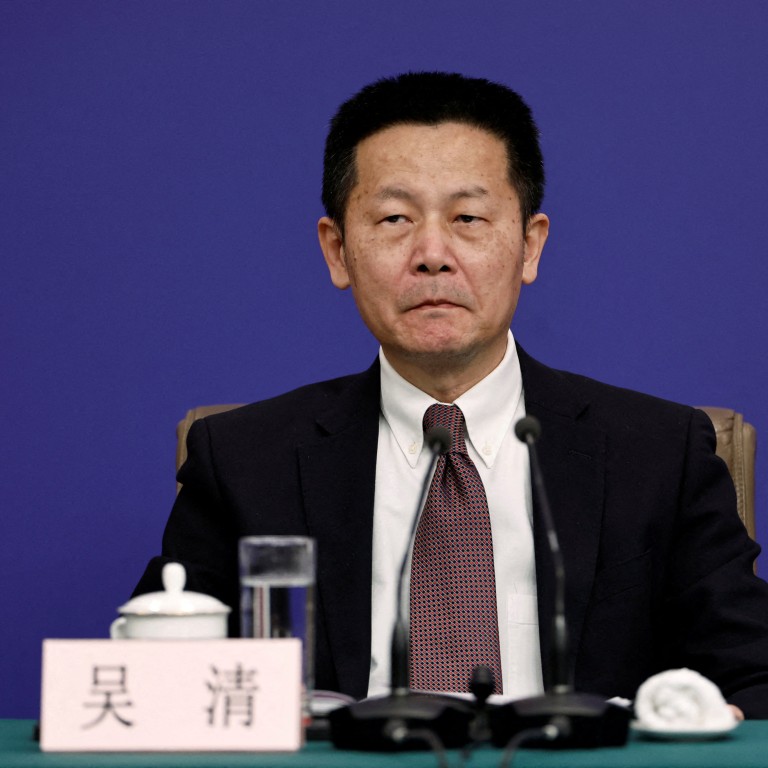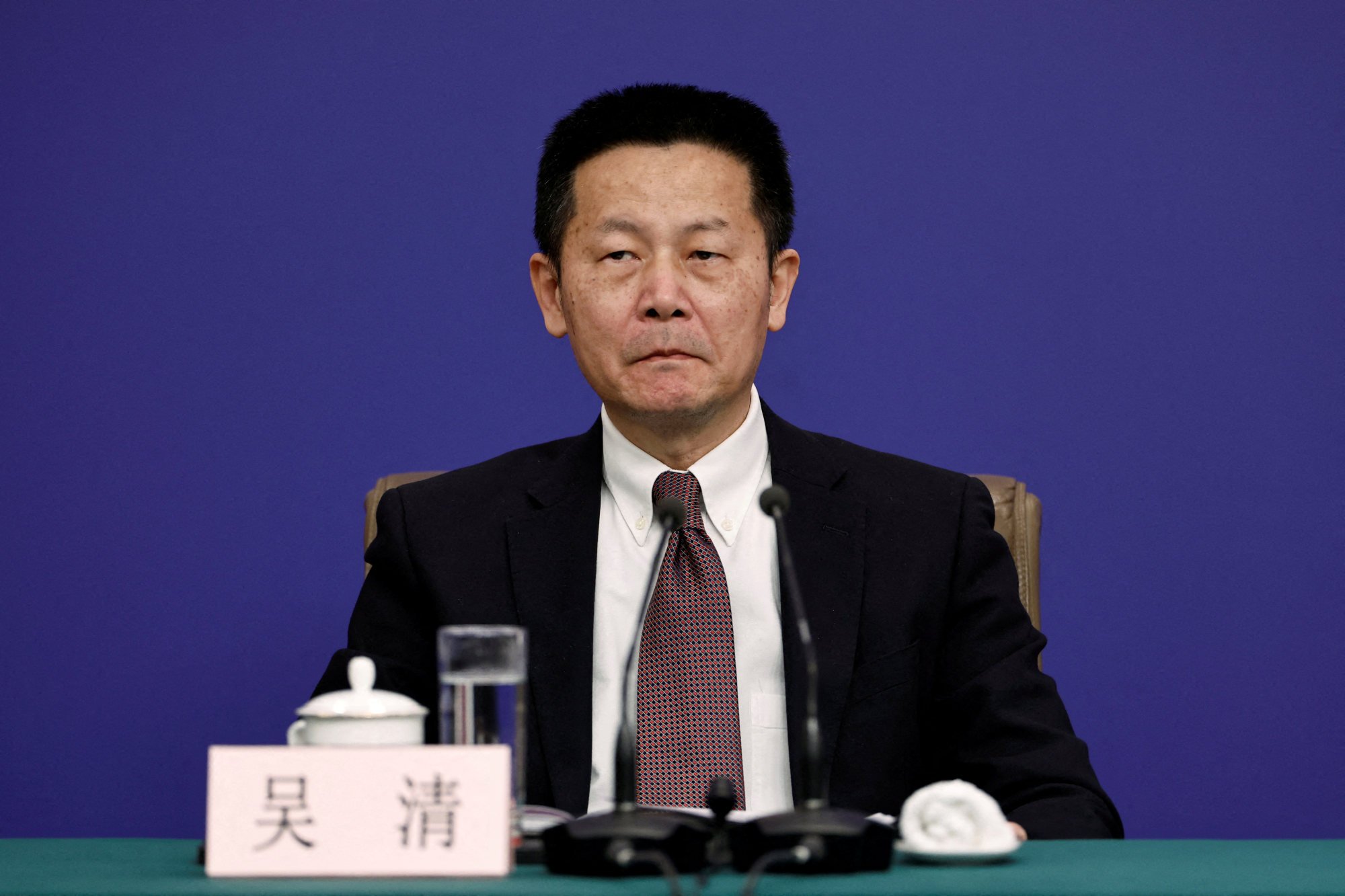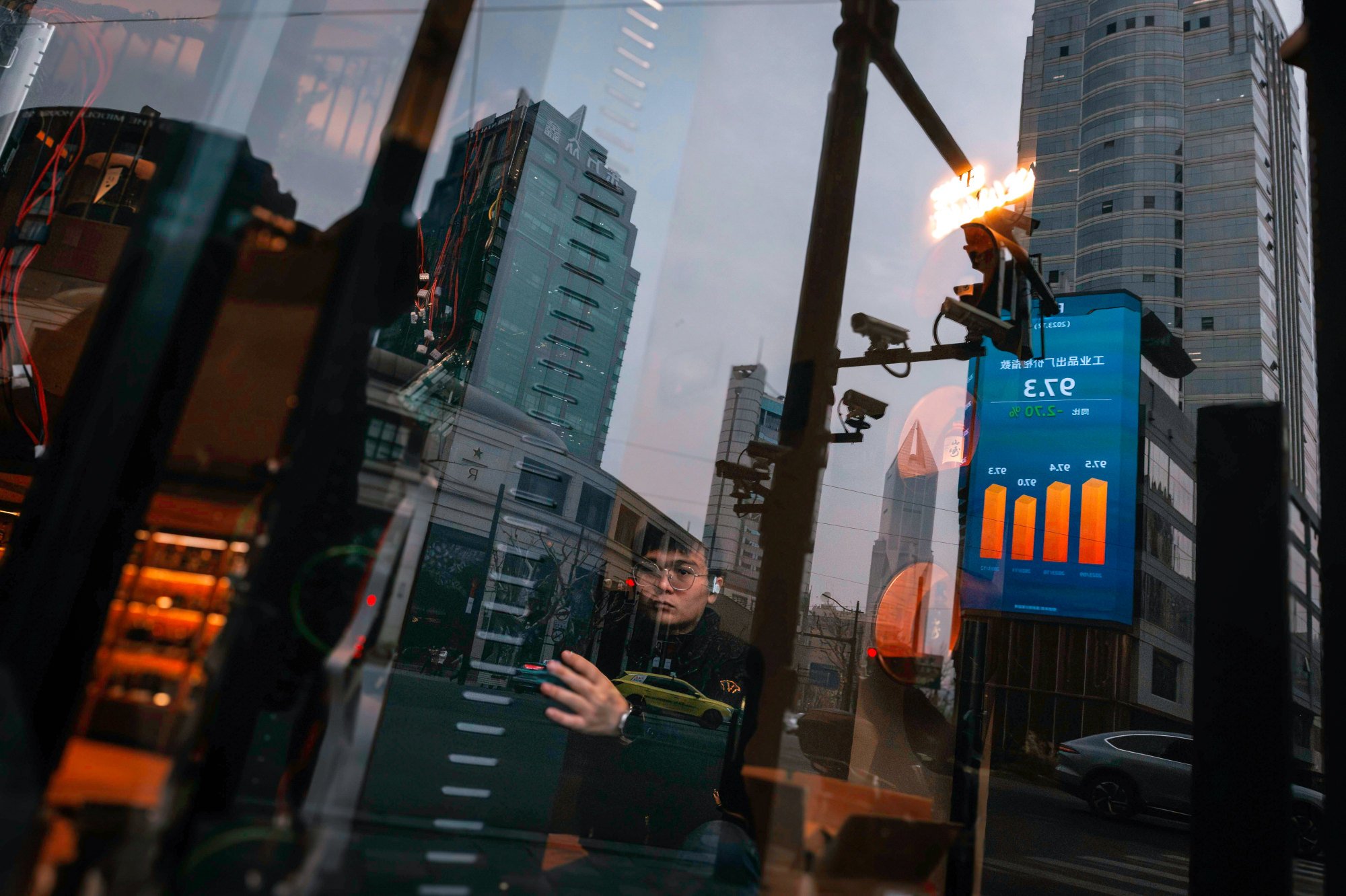
China’s ‘broker butcher’ vows to tighten IPO rules, curb excesses to restore confidence in US$9.2 trillion stock market
- China’s new boss at the CSRC is living up to his tough reputation, issuing four new documents governing IPO market behaviour
- Listing committee members have ‘life-long’ responsibility for any malfeasance, corruption in IPO vetting process
The government will control the quality of declarations in companies seeking to raise capital from the public, according to four documents released in one go by the China Securities Regulatory Commission (CSRC) in Beijing on Friday. It will strictly prohibit the “blind pursuit of initial public offerings (IPOs) and the raising of excessive financing for profit,” it added.
Authorities will probe financial fraud, false statements, whitewashing and other types of behaviour to crack down on accounting shenanigans, it said. In other measures, it will impose a regular on-site supervision mechanism, conduct random checks to ensure compliance, and raise the bar on IPOs by companies with profit track records.
The measures come as the market watchdog seeks to improve the quality of IPOs and restore confidence among investors in the US$9.2 trillion stock market, following a three-year market rout through the Covid-19 pandemic and the Lunar New Year in 2024. Beijing has also recently slowed approvals for listings to help contain stock market losses.

“Fewer new stock offerings mean that liquidity could be channeled into existing listings, which might help to shore up the market,” said Gary Ng, a senior economist at Natixis Hong Kong. It will reduce new deals and hurt bankers further, together with the cap on salaries, he added.
Excessive fundraising and low-quality IPOs have been blamed for the market’s poor performance in recent years. Companies raised US$53.5 billion from first-time stock sales in mainland China last year versus US$5.7 billion in Hong Kong, according to Bloomberg data. The benchmark CSI 300 Index tumbled 11 per cent in 2023.
The MSCI China Index, which tracks more than 700 stocks traded at home and overseas, has lost 0.1 per cent this year, despite more than US$57 billion of market intervention by state-run funds by one estimate. The index slumped by a cumulative 37 per cent from 2020 to 2023, erasing more than US$560 billion of value from its members.

While the intention is good, the fervour and penalties may alarm company officials and brokers.
Deputy chairman Li Chao said listing committee members that vet IPO applications carry a “life-long responsibility” for any malfeasance, breaches of discipline and corruption.
“We will firmly grasp the theme of strengthening supervision, preventing risk and promoting high-quality development,” Li told reporters in Beijing on Friday. These are also “areas where investors and market participants have more focus and suggestions,” he added.
The CSRC will make necessary adjustments to the pace of IPOs, depending on the market’s readiness to absorb new supply of equities, and prevent companies from raising more funds than they need in first-time stock sales to outside investors, Li said.
To further shore up the market, the regulator will enhance oversight of the brokerage industry, and frown on extravagant lifestyles and the flaunting of wealth. Mutual fund firms will be encouraged to increase their investment and research ability to better serve their customers and investors, Li added.


